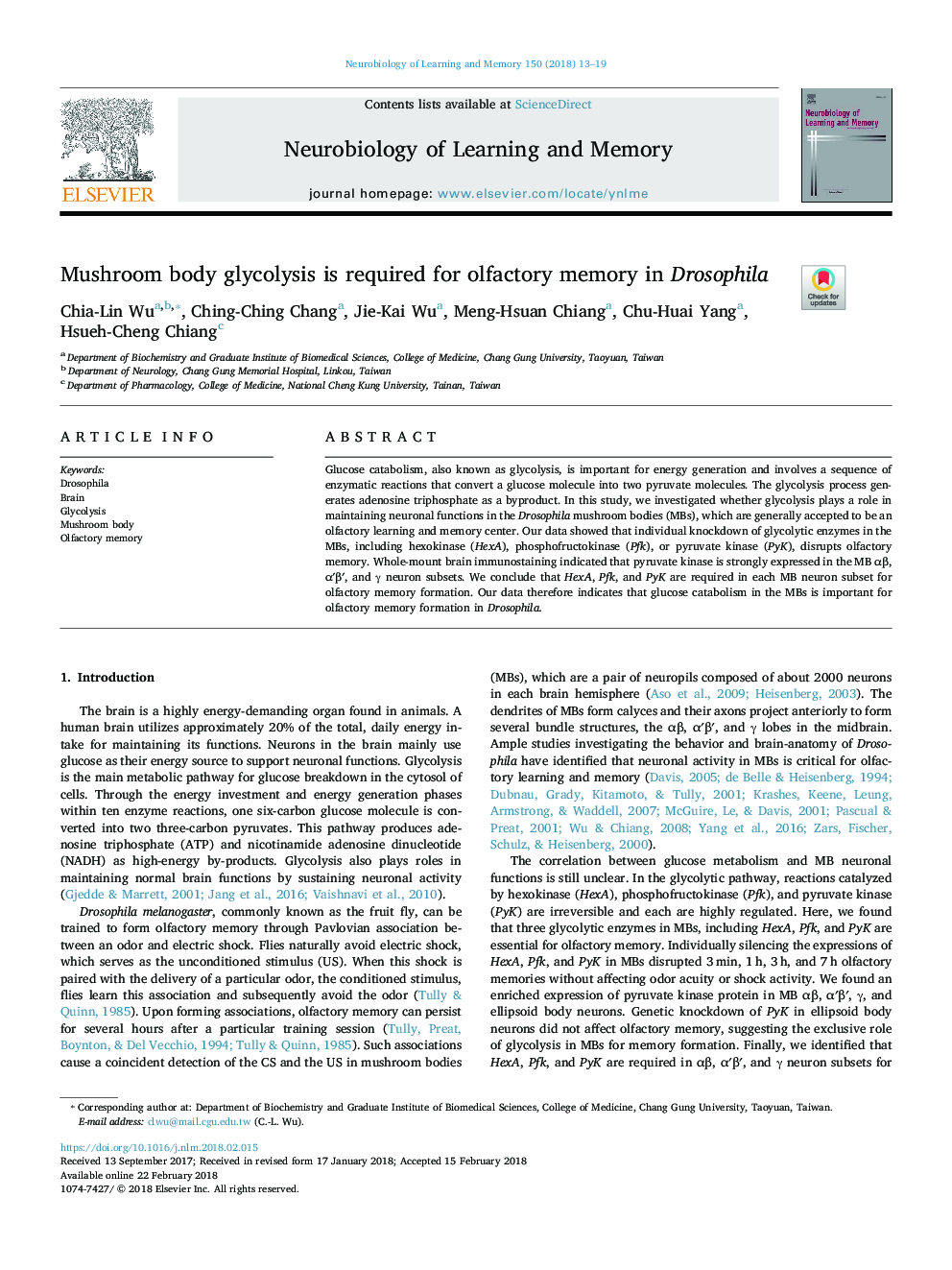| Article ID | Journal | Published Year | Pages | File Type |
|---|---|---|---|---|
| 7298807 | Neurobiology of Learning and Memory | 2018 | 7 Pages |
Abstract
Glucose catabolism, also known as glycolysis, is important for energy generation and involves a sequence of enzymatic reactions that convert a glucose molecule into two pyruvate molecules. The glycolysis process generates adenosine triphosphate as a byproduct. In this study, we investigated whether glycolysis plays a role in maintaining neuronal functions in the Drosophila mushroom bodies (MBs), which are generally accepted to be an olfactory learning and memory center. Our data showed that individual knockdown of glycolytic enzymes in the MBs, including hexokinase (HexA), phosphofructokinase (Pfk), or pyruvate kinase (PyK), disrupts olfactory memory. Whole-mount brain immunostaining indicated that pyruvate kinase is strongly expressed in the MB αβ, αâ²Î²â², and γ neuron subsets. We conclude that HexA, Pfk, and PyK are required in each MB neuron subset for olfactory memory formation. Our data therefore indicates that glucose catabolism in the MBs is important for olfactory memory formation in Drosophila.
Related Topics
Life Sciences
Neuroscience
Behavioral Neuroscience
Authors
Chia-Lin Wu, Ching-Ching Chang, Jie-Kai Wu, Meng-Hsuan Chiang, Chu-Huai Yang, Hsueh-Cheng Chiang,
